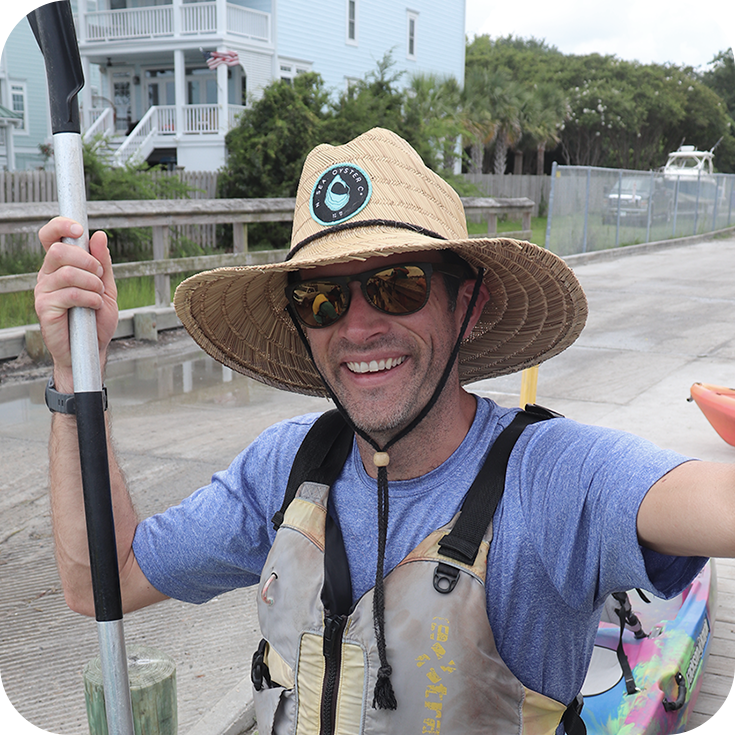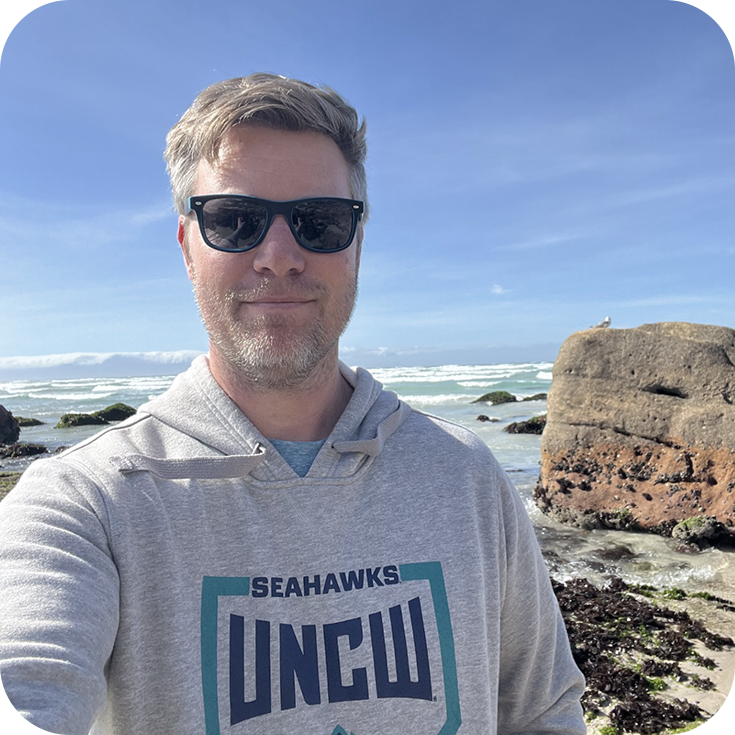Our mission is to build a diverse community of researchers, educators, and the public collaborating in the discovery, study, and protection of our coasts.
Individuals and coastal communities feel empowered to make decisions to address complex environmental issues they face. Through this work, these stakeholders possess more knowledge, relevant skills, and buoyant feelings that work together to foster more resiliency to our changing coastlines. Our research projects use participatory, interdisciplinary, collaborative approaches that result in capacity building and broad outcomes. We use adaptive management and evidence-based learning approaches that lead to a mantra of learning, reflection, and improvement.
Technology-enhanced coastal citizen/community/participatory science, coastal education and literacy, workforce training, and evaluation/adaptive management principles to enhance success

is an Associate Professor in the Department of Earth and Ocean Sciences and at the Center for Marine Science at the University of North Carolina Wilmington. He is deeply interested in community-engaged application of cutting-edge science, engineering, and education practices for coastal water resources, risks, and resilience. His research team, titled the Coastal Ocean Applied Science and Technology Lab (COAST Lab) seeks to contribute to coastal resilience by: (1) inventing and deploying cutting-edge connected sensors and platforms, (2) engaging reciprocally with coastal communities in the study and real-time dissemination of critical information, and (3) working toward improved ocean, climate, and coastal literacy for students of all ages. Ultimately, our work is targeted at investigating, teaching, and mitigating the effects of natural and human-caused coastal hazards (especially sea level rise/flooding, warming, ocean acidification, deoxygenation, and eutrophication). At UNCW, Bresnahan teaches undergraduate and graduate oceanography, field methods, and sensor development courses.

is an Associate Professor in the Environmental Sciences Department at the University of North Carolina Wilmington where he teaches undergraduate and graduate courses in environmental education, environmental interpretation in protected areas, environmental nonprofit organizations, and global environmental problems. He is a lead faculty member in the Master of Science in Environmental Sciences concentration in Environmental Education and Interpretation. He has coordinated research and evaluation projects with collaborators and stakeholders around the United States and abroad. His work employs collaborative and interdisciplinary approaches to enhance broad outcomes of environmental and ocean education, participatory (citizen) science, and coastal resiliency efforts with individuals and communities. He is particularly interested in building diverse communities of practice that leverage evaluation and ongoing collaboration to build capacity, enhance the speed of learning, and promote more positive outcomes.
The Participatory Ocean Color Network is a collaboration between researchers, graduate students, and individuals from coastal communities around the United States to investigate changes in ocean color and clarity.
Additional Smart Coasts Collaborative projects are underway. Stay tuned for more!